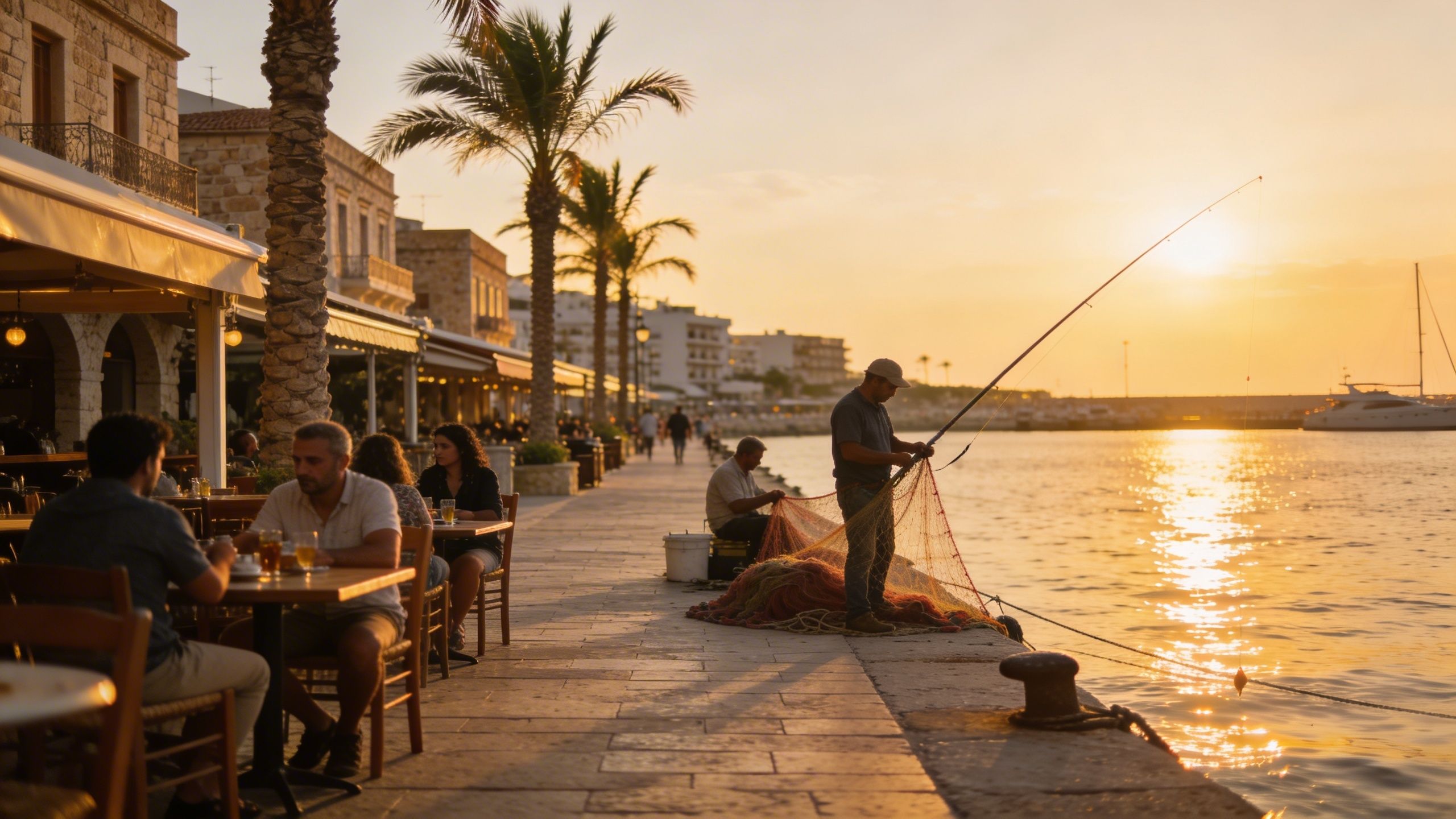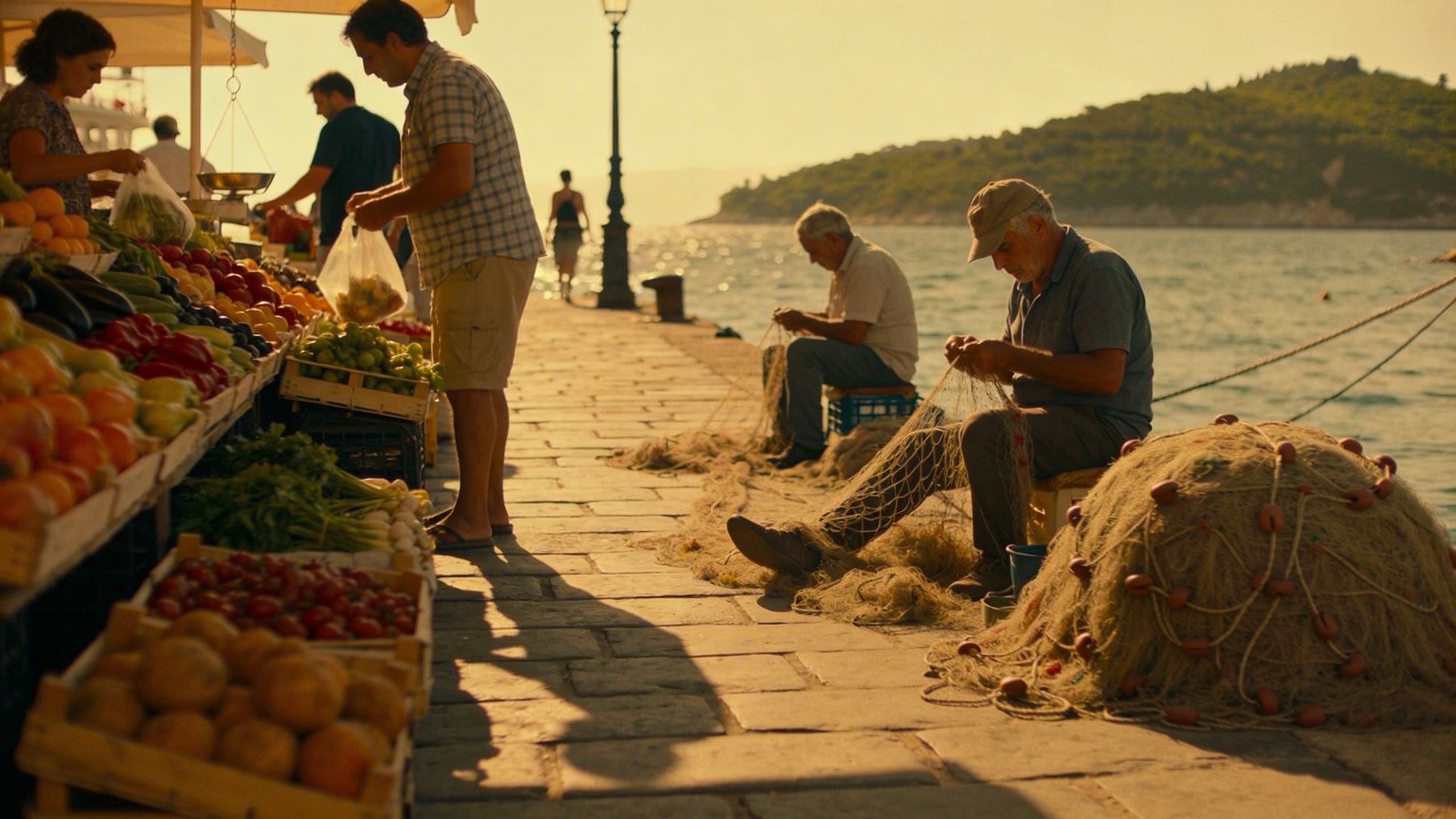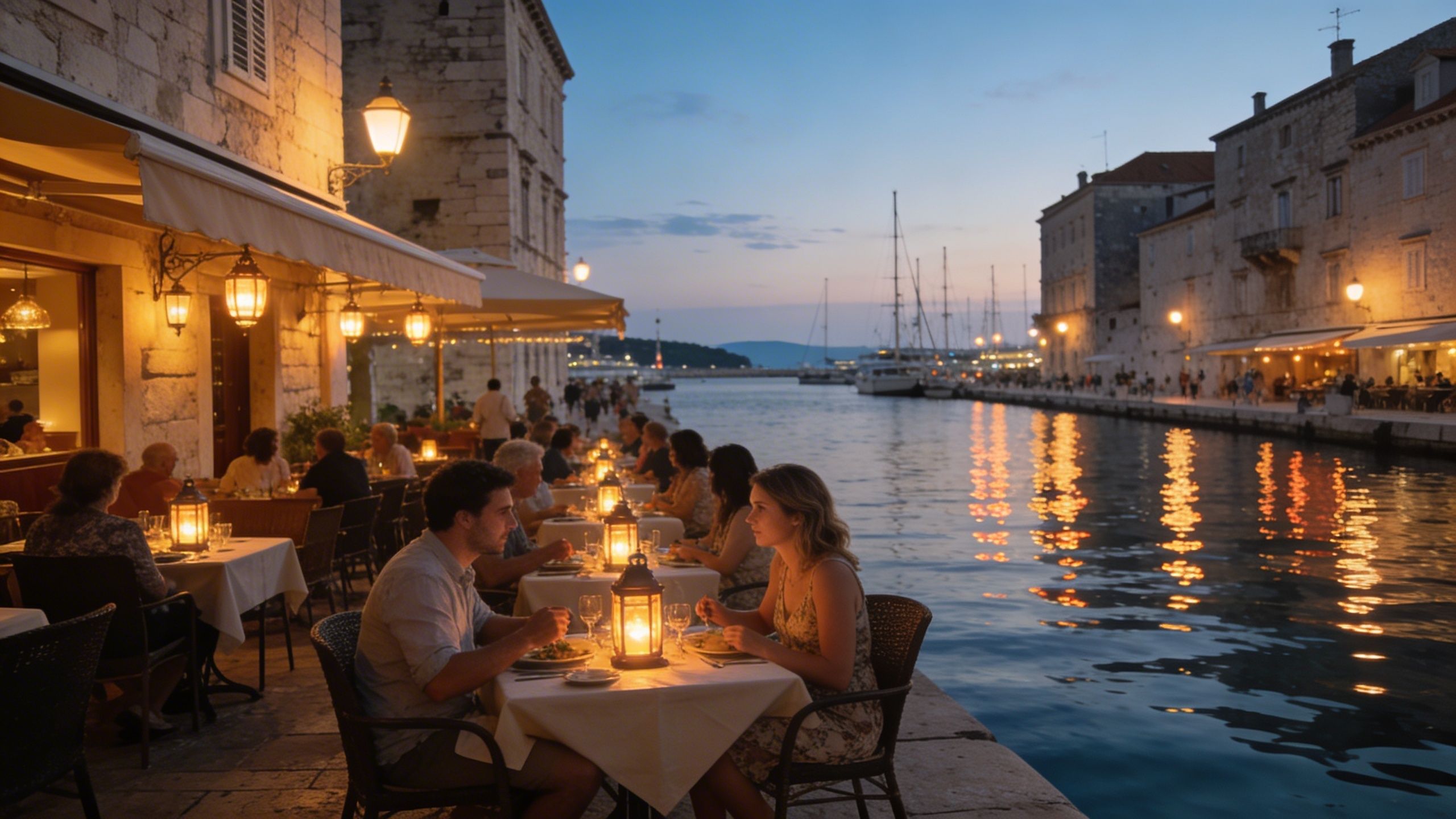When the Adriatic Summer Misleads: Timing Finance in Croatia
Summer scenes often mislead buyers: Croatia’s prices rose into 2025 and seasonal markets change financing, legal timelines and long‑term holding costs.
Imagine a summer afternoon on the Dalmatian riviera: sun-warmed limestone, a narrow cafe in Split where locals argue gently over football, and a terrace that catches late light across the Adriatic. For many internationals that scene is the reason to consider Croatia; it promises a particular rhythm of life—sea, fresh markets, small‑scale craftsmanship and a compact, civic centre where daily errands are social rituals. Yet the same season that sells the dream can skew how you see price, availability and financing. According to recent market analysis, price momentum has been strong into 2025, and that changes the calculus for timing finance and mortgage strategy.
Living the Croatian Life
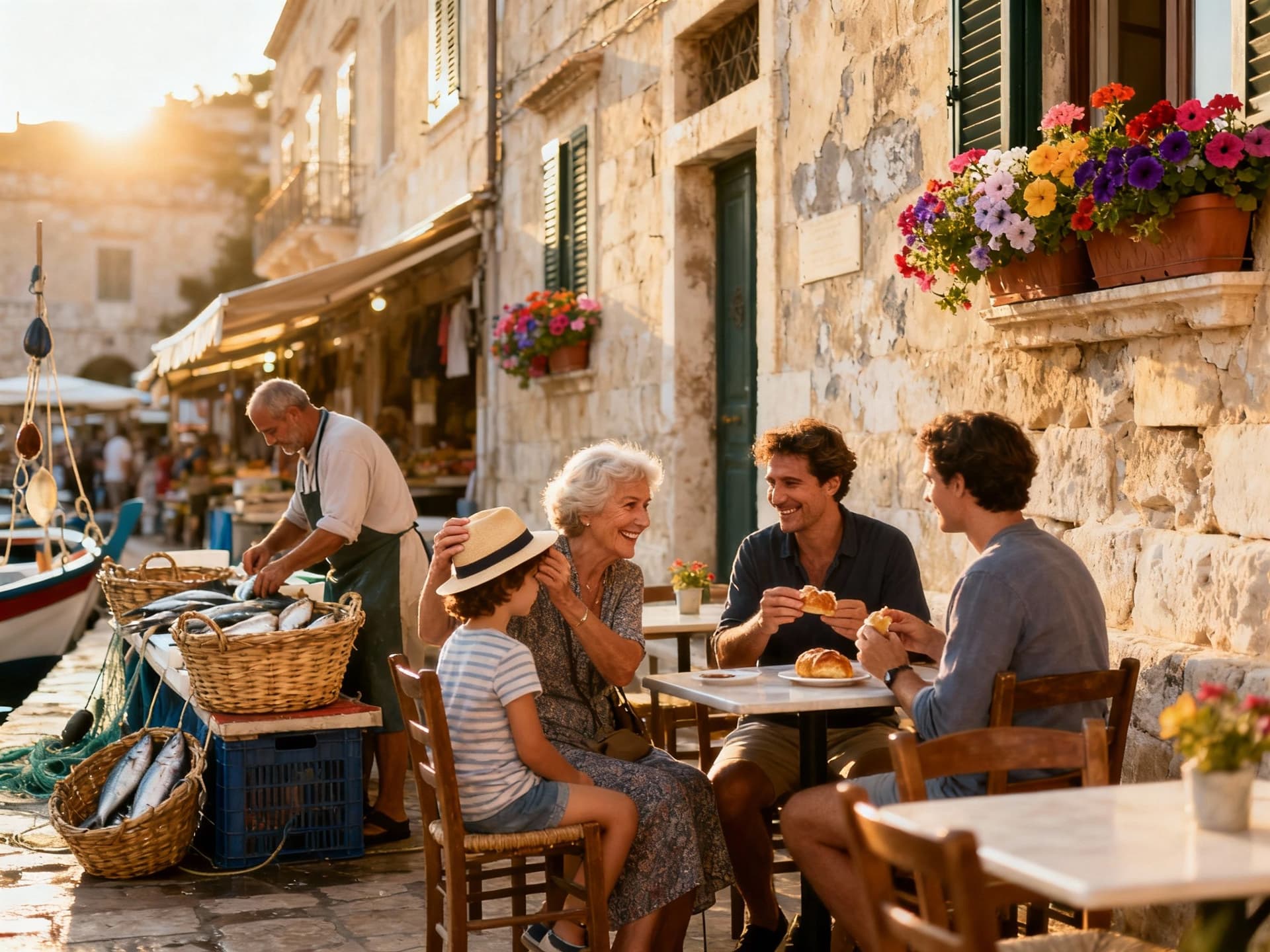
Croatia’s everyday pulse is smaller in scale than larger Western capitals: mornings begin at bakeries and market stalls, afternoons drift to seaside promenades and siestas in shaded squares, and evenings gather around long meals of grilled fish and local wine. Areas differ sharply: Zagreb keeps a measured, continental cadence with leafy streets and modernist apartment blocks, while coastal towns such as Hvar, Rovinj and Trogir stitch together Venetian facades, narrow steps and harbour life. The texture of place matters to how you will use a property—whether as a year‑round base, a seasonal bolt‑hole, or a rental asset—and this informs the type of finance you should pursue.
Coastal towns and island life — where summers are theatrical
On islands like Brač or Korčula and in towns such as Dubrovnik, the tourist season reshapes everyday life: narrow streets refill with seasonal businesses, short‑term lets dominate central quarters, and the market offers an abundance of serviced properties. These are places where the lifestyle is immediate—sea swims at dawn, terraces for long lunches, proximity to artisan producers—but where buyers must look past highly curated summer visits. The financing challenge here is twofold: lenders may price risk differently for properties with strong seasonal income, and valuations seen in July can be notably higher than in low season.
Zagreb and inland rhythms — winter solidity
Zagreb, Varaždin and interior towns offer a steadier year‑round life: civic cafes, cultural institutions, and a real estate market less driven by tourism. If you prize community continuity, local schools and predictable services, inland living changes what mortgage structure makes sense—longer fixed rates and conservative loan‑to‑value ratios typically align with ownership plans that emphasise habitation over short‑term income. The architectural heritage—secessionist facades, timber details, and classical townhouses—also carries specific maintenance and insurance considerations that lenders factor into underwriting.
- Lifestyle highlights to scout during visits: • Morning coffee at Split’s Riva followed by the fish market on Matejuška • Late‑season swims on Zlatni Rat beach, Brač, when the crowds have thinned • An evening at Hvar’s lower harbour, watching wooden fishing boats return • Sunday produce at Dolac market in Zagreb and lunch at Vinodol • A slow walk through Rovinj’s old town lanes, pausing for artisan olive oil tastings
Making the Move: Practical Considerations
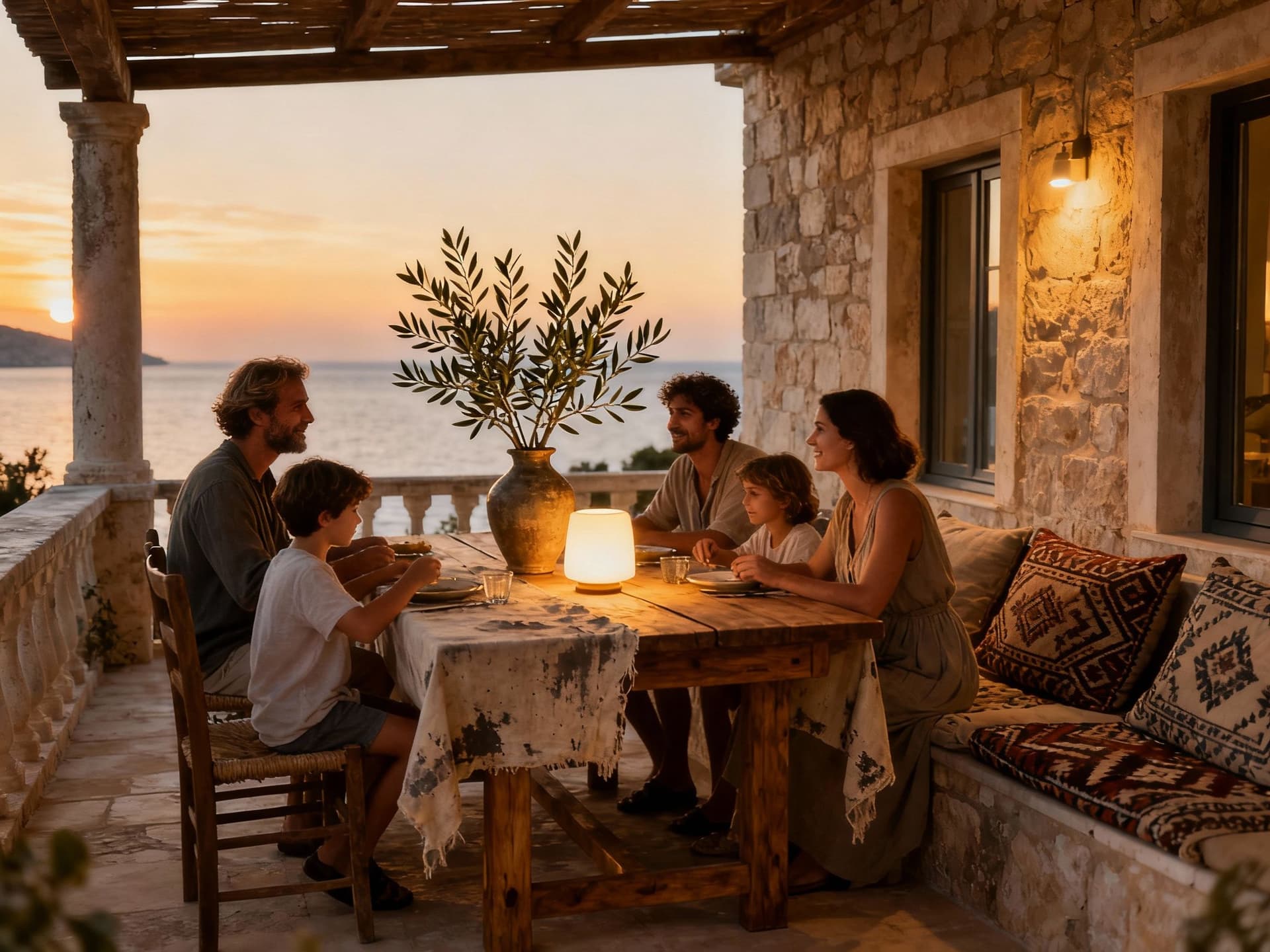
Dreams meet regulation. Croatia permits EU citizens to buy under largely equal terms, while non‑EU buyers require administrative consent and sometimes reciprocity agreements with their home country. Those rules affect financing: lenders assess eligibility, residency status and the ease of registering collateral in cadastre and land registry records. Before committing to an offer, it is vital to understand whether you will be treated as an EU buyer or require Ministerial consent, because this alters not only the legal timeline but often the lending options available to you.
Property styles and the financing they favour
New builds, stone townhouses and renovated villas each carry different balance‑sheet logic. Croatian house price indices rose markedly through early 2025, with new builds increasing faster than second‑hand homes, which influences lender appetite and pricing. Banks typically offer higher LTVs for new construction with developer warranties and solid permits, while historic restorations—though architecturally superior—may need larger equity deposits and a specialised valuation that recognises restoration quality rather than market comparables alone.
Working with local experts who embody the lifestyle
- A practical sequence to marry lifestyle and finance: 1. Visit out of season to measure everyday life and obtain more candid pricing signals. 2. Confirm statutory purchase eligibility early (EU vs non‑EU) so you understand administrative timelines. 3. Obtain a pre‑approval that accounts for seasonal rental assumptions if you plan to let. 4. Engage a notary, local lawyer and a specialist valuer to confirm cadastre, coastal setback lines and permitted uses. 5. Structure the mortgage with buffers for maintenance, tourist‑season variability and potential new property taxes.
Insider Knowledge: What Expats Wish They’d Known
The headline that property taxes would change caught many buyers by surprise. Policy shifts announced in 2024 signalled a move toward property‑based taxation to address housing availability and short‑term rental distortions; such measures can affect holding costs and the effective yield on coastal investments. Expats who assumed low ongoing costs found that a quiet legislative change can alter a rental model or the decision to convert a holiday home into a long‑term rental. Expect governments to favour longer tenancies and to incentivise properties rented for most of the year.
Cultural integration, language and neighbourhood life
Croatians value local ties and straightforward courtesy; learning basic Croatian phrases and attending market mornings are meaningful ways to be accepted. In many towns the cafe is civic space where relationships are formed and neighbourhood information exchanged—who to call for repairs, which builder respects old stonework, where the best olive oil is pressed. Practically, local relationships speed administrative tasks and offer better insight into how a property will function beyond glossy listing photos.
Longitudinal view: stewardship and generational value
Buying in Croatia is often a stewardship choice as much as an investment: many desirable properties are historic, built of stone, with artisan joinery and terraced gardens. Long‑term ownership rewards those who invest in quality restoration, sympathetic materials and local craftsmen—decisions that lenders and insurers recognise over time. Consider financing that allows for phased renovation and preserves capital for maintenance: a property with provenance holds cultural and market resilience that short‑term speculators seldom achieve.
- Red flags and practical checks before you sign: • Missing or unclear land registry entries — insist on an up‑to‑date extract from the land book • Unpermitted conversions in coastal zones — check coastal setback and municipal permits • Overreliance on summer income — model conservative rental income for off‑season months • Vague seller disclosures about structural works or historical restorations • Insurance gaps for heritage materials and coastal salt exposure
If Croatia feels like the right life, make the practical next move. Start with an off‑season visit, secure pre‑approval from a lender that understands seasonal cash flows, and assemble a local team—lawyer, notary, valuer and an agency that privileges provenance and stewardship. These steps preserve the lifestyle you came for while protecting your financial position. When a property speaks of material quality and municipal clarity, it is more likely to become the durable home you imagined.
Relocating from London to Mallorca in 2014, I guide UK buyers through cross-border investment and tax considerations. I specialise in provenance, design integrity, and long-term value.
